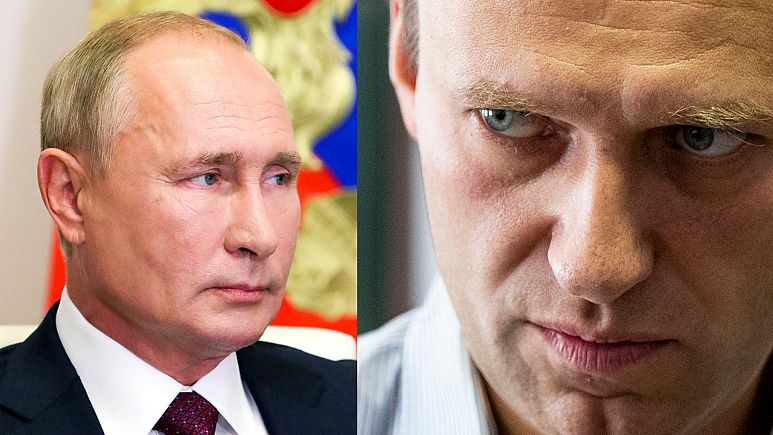Russians vote in local elections in key test for ruling party
by Alice Tidey
"Stakes are high" as millions of Russian voters head to the polls on Sunday to elect regional governors and local assemblies, just weeks after the country's main opposition figure Alexei Navalny was poisoned.
Some 9,000 electoral races are being fought including 18 plebiscites of regional governors and about a third of the country's electorate — some 35 million people — are expected to vote.
"Regional elections in Russia can be perceived as a mirror in which one can see a reflection of broader attitudes within Russia," the Europe Elects think tank and poll aggregator said.
"The regional elections are not free from electoral fraud as stakes are high — and the federal centre isn't eager to see an appearance of cracks in the top-down power mechanism," it added.
Tactical voting
These elections, largely seen as a dry run of next year's parliamentary elections, come just three weeks after Navalny's poisoning.
The Kremlin critic fell ill on August 20 and was medevaced to Germany two days later where tests found "unequivocal proof" Navalny was the victim of an attack with of a Novichock nerve agent.
The Russian government denies any involvement.
Navalny, who has since been taken out of his induced coma and is responsive, champions tactical voting to back candidates best placed to beat the ruling United Russia party.
Putin's approval rating remains high
According to pollster Levada, President Vladimir Putin continues to enjoy broad support with 66 per cent of the electorate currently satisfied with his leadership.
United Russia, however, has seen its approval rating plummet. It is credited with 31.5 per cent of voting intention by state pollster VTsIOM, one of its lowest scores since 2006, according to tot Reuters.
The ballot comes just two months after a controversial constitutional change enabling Putin to remain in power until 2036 was passed and as the country battles the sanitary and economic consequences of the global COVID-19 pandemic.
The Russian economy, hampered by years of stagnation made worse by Western sanctions following the illegal annexation of Crimea, is expected to contract by six per cent this year — an 11-year-low according to the World Bank.
Protests against the Kremlin's heavy-handedness have also become more common. Tens of thousands of people regularly marched in the eastern city of Khabarovsk over the summer to protest the arrest of the region's governor.
Sergei Furgal was arrested and flown to Moscow in early July to face charges of involvement in multiple murders but protesters contest that the allegations are politically motivated.
Last August, tens of thousands also rallied in Moscow in one for the city's biggest political protests in recent years to denounce the exclusion of opposition and independent candidates from the local council ballot.
'Electoral system even more opaque'
Allegations of vote-rigging have already surfaced as early voting was allowed from Friday due to the COVID-19 pandemic.
A report released in July by the independent election watchdog Golos warned that lawmakers "used the epidemiological situation as an excuse to make the electoral system even more opaque and subject to manipulation, including direct falsifications".
Among the changes decried by opposition figures are so-called "home voting" — where election officials go to people's homes to gather their votes.
Navalny's Anti-Corruption Foundation (FBK) said on Twitter than officials gathered 360 ballots during such a visit when only 21 people where registered to vote.